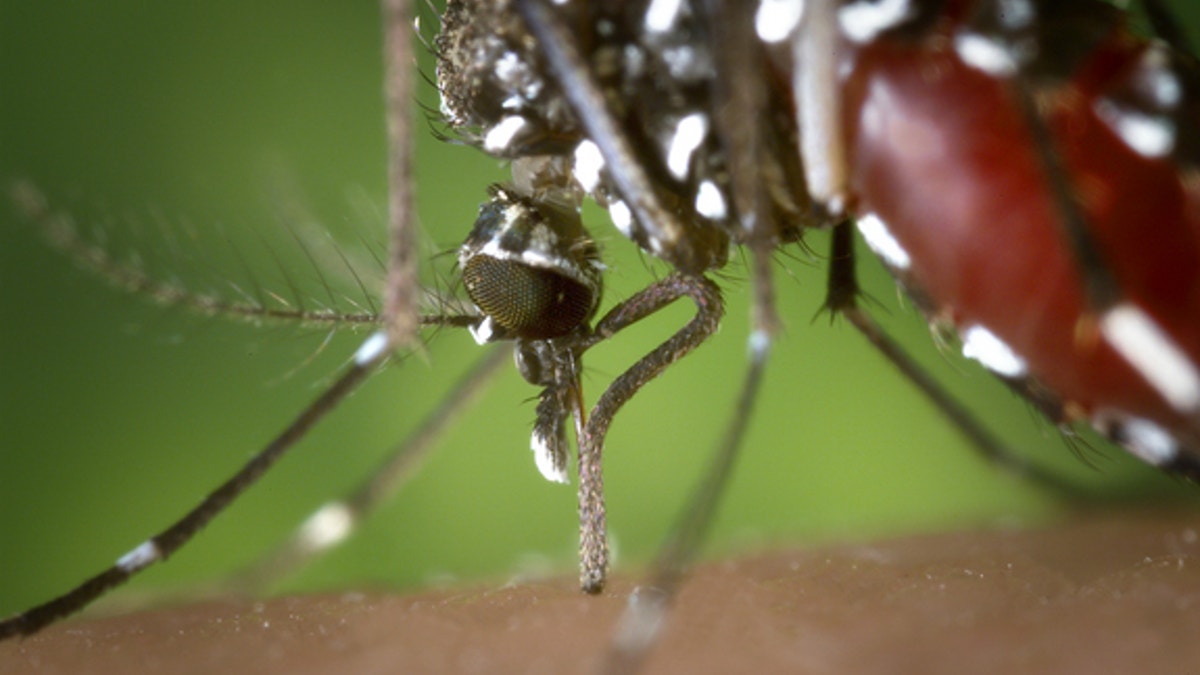
The proboscis of an Asian tiger mosquito (Aedes albopictus), a virus vector common in North America, as it feeds on human blood. (CDC/James Gathany)
A baby born with brain damage at a hospital in Oahu, Hawaii, has been confirmed to have been infected by the Zika virus, that state's department of health said, in what appears to be the first U.S. case of the mosquito-borne virus.
The Hawaii State Department of Health said in a written statement that the mother was believed to have had a Zika infection while living in Brazil in May 2015 and that the baby was likely infected in the womb.
"We are saddened by the events that have affected this mother and her newborn," Dr. Sarah Park, Hawaii state epidemiologist, said in the statement.
On Friday U.S. health officials issued a travel warning for 14 countries and territories in the Caribbean and Latin America where infection with Zika is a risk.
The U.S. Centers for Disease Control and Prevention (CDC) in particular cautioned pregnant women not to travel to those areas as Zika has been linked to serious birth defects. (http://www.cdc.gov/zika/index.html)
The travel alert applies to Brazil, Colombia, El Salvador, French Guiana, Guatemala, Haiti, Honduras, Martinique, Mexico, Panama, Paraguay, Suriname, Venezuela, and the U.S. Commonwealth of Puerto Rico.
It also includes advice that women who are trying to become pregnant should consult with their doctor before traveling to those areas.
In the Hawaii case, a doctor recognized the possibility of a Zika infection in the newborn baby and alerted state officials, the health department said. The infection was confirmed by a laboratory test conducted by the U.S. Centers for Disease Control and Prevention.
The Hawaii health department said it sent a medical advisory about the infection to doctors across the state but emphasized that neither the mother nor baby were infectious.
Zika virus is transmitted by Aedes species mosquitoes, which also spread dengue and chikungunya viruses and are common in Texas, Florida and elsewhere in the United States.
The virus is usually a mild illness with fever, rash and joint pain. There is no preventive vaccine or treatment, according to the CDC.